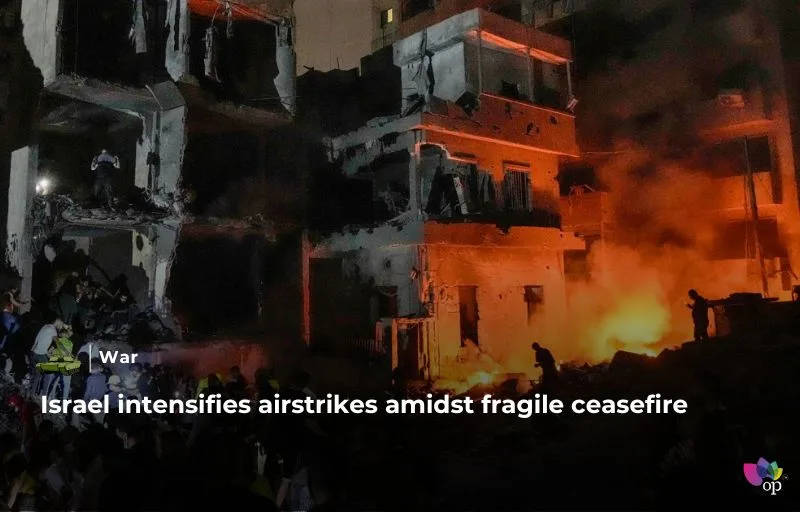According to the reports on Tuesday (3 December), Israel conducted its largest wave of airstrikes across Lebanon since a ceasefire agreement with Hezbollah was established, killing at least 11 people. The strikes were in response to projectiles fired by Hezbollah, marking the first such attack by the group since the truce began. The ceasefire, brokered to end the prolonged conflict between Israel and Hezbollah, remains fragile as accusations of violations by both sides increase tensions.
Hezbollah claimed the projectile attack was a defensive response to repeated Israeli truce breaches, including airstrikes and destruction of property in southern Lebanon. Israel stated its actions were retaliatory, citing violations of the agreement. Lebanese officials, including Parliament Speaker Nabih Berri, accused Israel of over 50 truce violations. U.S. officials, who helped broker the truce, maintained that despite the skirmishes, the ceasefire was largely holding.
In Gaza, the humanitarian crisis worsened as hunger and displacement grew. The United Nations halted aid deliveries due to threats of looting, and limited food supplies exacerbated fears of famine. Hundreds of thousands of Palestinians displaced by the conflict rely on inadequate international aid while living in makeshift camps under dire conditions. Israeli forces claimed they were increasing the flow of aid, but logistical and security challenges hindered effective delivery.
Adding to the regional tension, former U.S. President Donald Trump called for the immediate release of Israeli hostages held by Hamas in Gaza, threatening severe consequences if they were not freed. The conflict in Gaza, triggered by Hamas’ attack on Israel in October 2023, has devastated the region, leaving civilians struggling for survival and fueling further discord in an already volatile Middle East.
References


